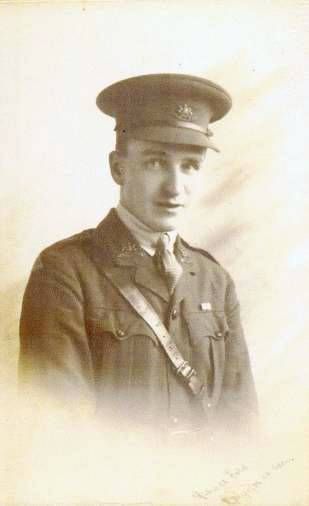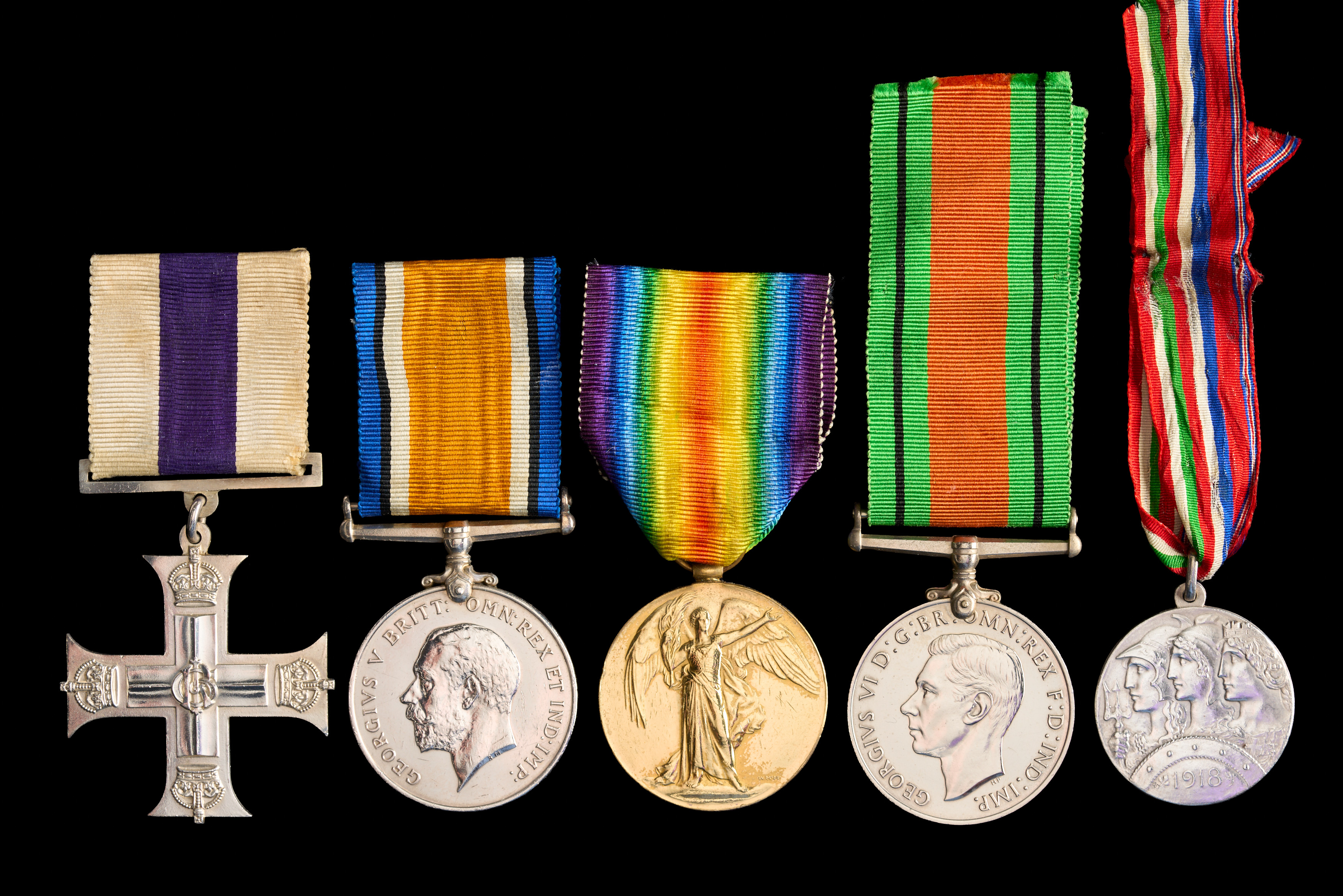

Military Cross; British War Medal; Allied Victory Medal; Defence Medal; 1918 Army of Altipiani ‘Victory’ Medal
John (known as ‘Jack’) was born on the 25th May 1895 in Lambeth, London. He was the eldest son of John and Blanche who married in 1894 and had six children. His father worked as an Army tailor for various military outfitters.
After John came four more sons and a daughter. In February 1905 John’s sister died of tubercular meningitis, and in September of that year his father died of bronchitis and emphysema aged 39. His mother moved to Clacton-on-Sea, Essex in 1908 where she ran boarding houses with her widowed sister. All of her children went with her except for John who lived with his paternal grandparents, unmarried aunts and uncle instead.
By 1911 John was working in the Civil Service. He was steered towards this career by his aunts because of the perceived security and status such a role would bring.
John joined the Army in July 1915. He first joined the Cyclist Corps with the service number 8214. He was promoted to the rank of Corporal and then joined the Officer Cadet Unit at Pirbright.
After completing officer training John joined the 21st Battalion of the Manchester Regiment as a Second Lieutenant in October 1917. Also known as the 6th City Battalion, this was a ‘pals battalion’ of Manchester lads who enlisted, trained and fought together.
John served in both Italy and France during the First World War. He served in Italy during the Piave campaign and in France in October 1918. John was awarded the Italian “Armata Altipiane” ‘Victory’ Medal.
John was awarded the Military Cross and received a citation in the London Gazette on the 2nd of December 1918. This was for gallantry and good leadership in a raid when he personally guided parties through the enemy wire. He then lead a small party in searching houses and dug-outs killing several enemies and capturing others and then helped a wounded man back to friendly lines during the withdrawal. The official citation states that: He set a very fine example of courage to his men.
During his service John was wounded three times, and subjected to a gas attack on two occasions. He was 'released from actual military duty' on the 7th January 1919 while recovering from his latest injury. He did not re-join the regiment and relinquished his commission in September 1921.
John married Dorothy (Dot) Gadsden in June 1919. They had met when they were 15 and became engaged before he went overseas. He continued in the Civil Service after leaving the Army, and later became a Custom and Excise Officer The couple rented a house in East London but bought a house in Ilford before their daughter Dorothy was born in 1928.
In 1939 the family moved to North Wales. At the outbreak of the Second World War John joined the Home Guard as a captain and later became an Air Raid Warden. In 1947 he moved to Fife in Scotland and worked as an Excise Officer at a whisky distillery. He died on the 10th February 1955 aged 59.
John’s medals were donated to the museum collections in 2013.




